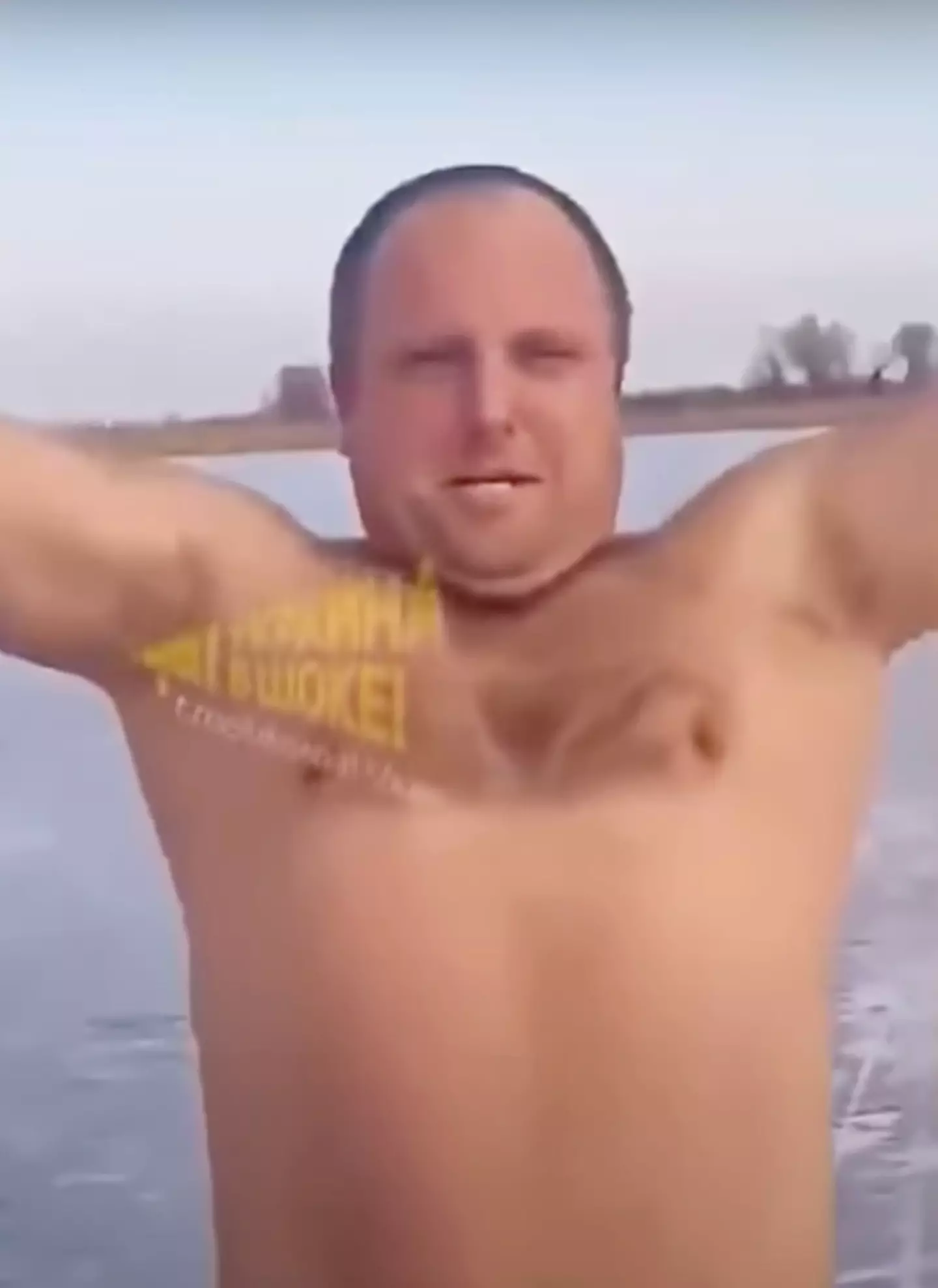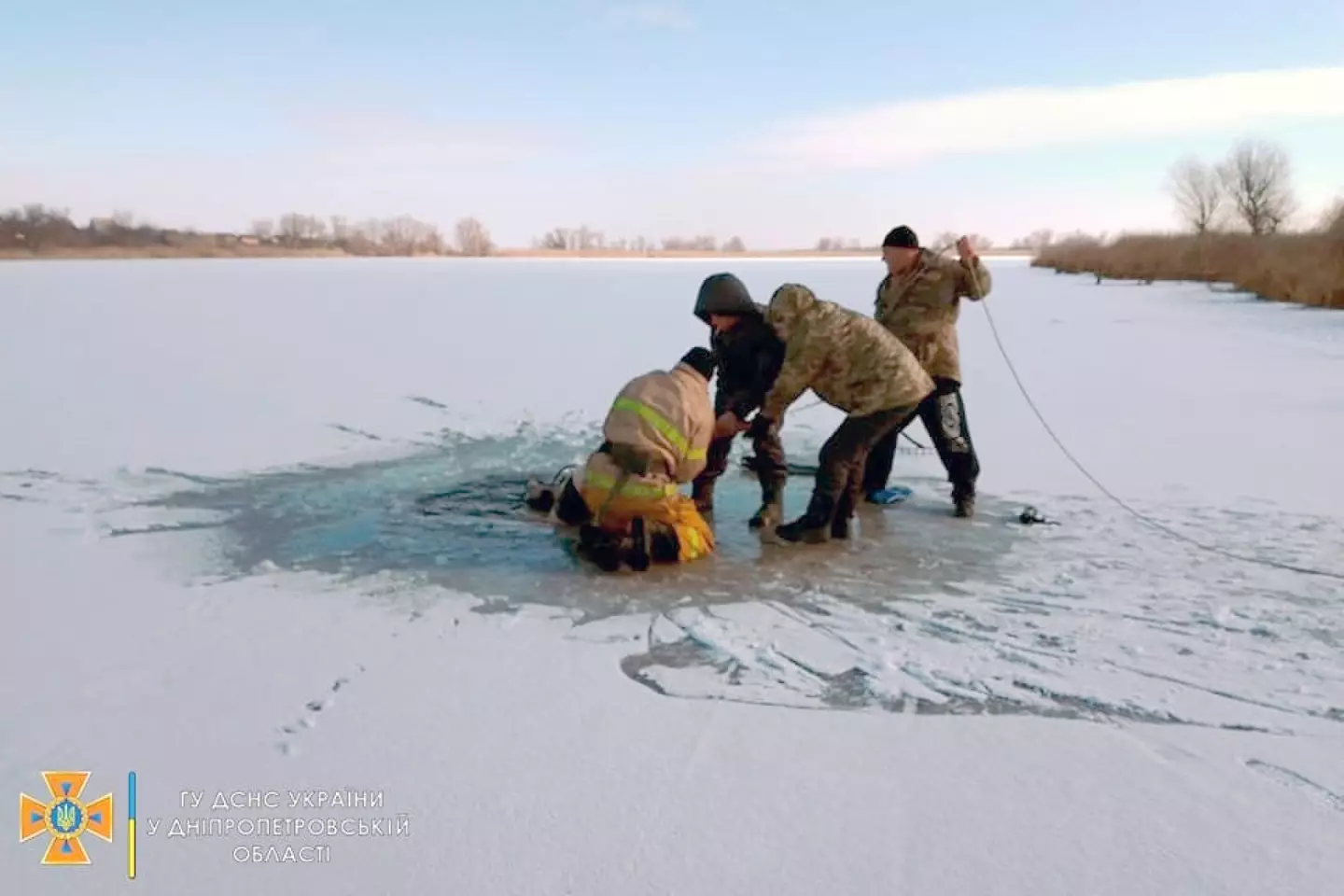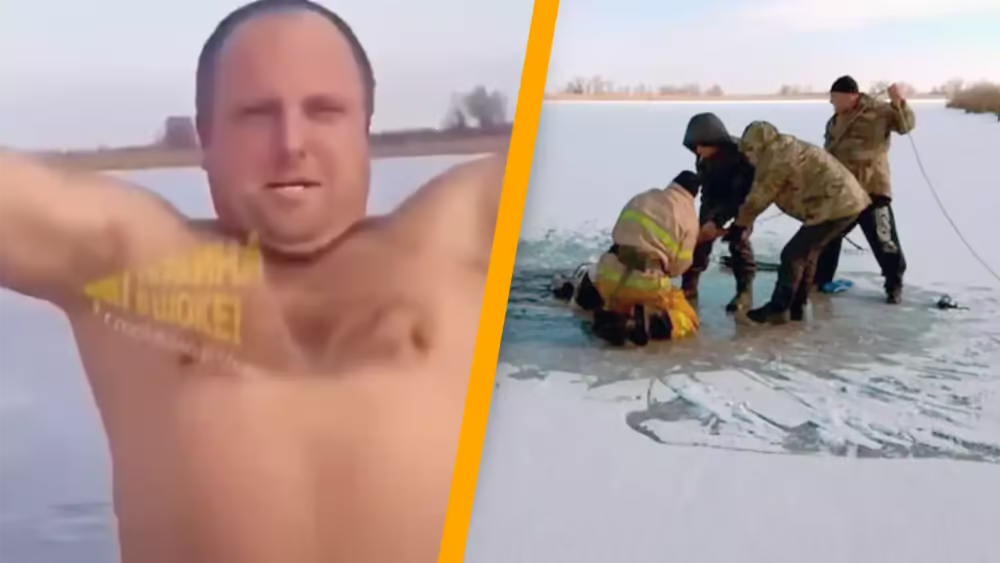A tragic video has emerged, showing a man tragically losing his life after diving into a frozen lake, serving as a cautionary tale for those who swim in cold water and participate in ice diving.
The footage, which recently resurfaced on social media, features 38-year-old Alexander, who takes a plunge into an icy pool on the Chortomlyk River, near the village of Kapulivka in Ukraine.
Sadly, this video would be the last recorded by his wife.
In the video, a friend is seen using a chainsaw to cut a hole in the ice, preparing a spot for Alexander to jump into.
When asked by his wife if he’s ‘scared’, Alexander confidently replies that he’s ‘not’. Despite the freezing conditions—where temperatures dropped to -5°C—and his friend being bundled up in a heavy coat and hat, Alexander insists he’s not cold, wearing only swimming trunks and standing barefoot on the ice.
His wife comments: “Oh my god, I can’t stand it, it’s so cold. It’s cold. Oh god, I hope you won’t get sick.”
Then, Alexander makes the leap.

He jumps feet first into the square hole carved out of the ice, disappearing beneath the frigid water.
As Alexander becomes fully submerged, his wife is heard saying: “Oh God, so worrying…”
When he fails to resurface in the tense moments that follow, she exclaims: “Oh dear, where is he? Where is he? Oh God! Where is he?”
Realizing the dire situation, Alexander’s wife frantically asks those around her: “Oh dear God, I don’t know what to do. Shall I call the rescuers?”
The man with the chainsaw tries to cut another hole in the ice to locate Alexander or assist him, but rescue attempts proved futile. Divers were later deployed, yet they found him too late.
The next day, Alexander’s body was retrieved from a depth of 13 feet, approximately 70 feet from the shore, having been swept away by the current.
A rescuer reported: “The body of the deceased man, born in 1983, was taken to the shore and handed over to a police officer.”
The blog Wild Big Swim provides guidance and cautions for those engaging in cold water or ice swimming.

The blog suggests acclimatizing to lower temperatures, especially those below freezing.
According to an experienced swimmer, regular exposure to cold conditions enhanced their ‘habituation’, which helped prevent their body’s nervous system from going into shock due to the freezing temperatures.
Instead of immersing your entire body immediately, it’s advised to first splash yourself with the cold water to minimize the chance of cardiac arrhythmia—a condition where the shock of the cold causes an irregular heartbeat.
The blog also warns that cold shock can lead to hyperventilation, a gasping reflex, and peripheral vasoconstriction—where blood vessels constrict, reducing blood flow to the skin, and raising heart rate.
Experiencing the gasping reflex can increase the likelihood of drowning if submerged underwater; thus, keeping your head above water while entering is recommended until the initial shock subsides.

